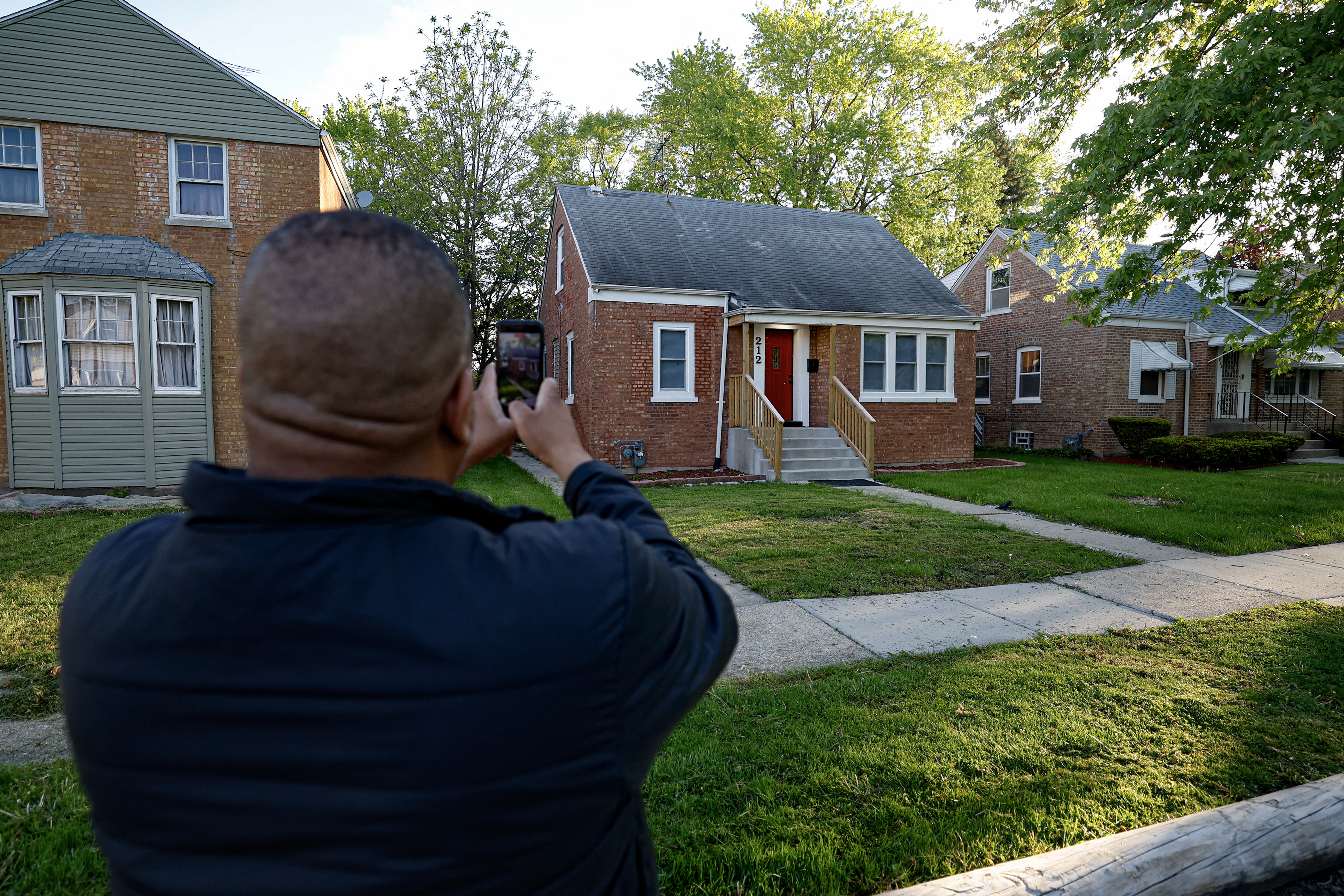Real Estate Bargains: Corcoran's Guide to Scoring a Deal Now!
Unlock Real Estate Deals: Barbara Corcoran's Market Insight
Introduction: Riding the Real Estate Wave with Barbara Corcoran
Thinking about buying a home? The real estate market can feel like a rollercoaster, right? But what if you had a seasoned pro giving you the inside scoop? Enter Barbara Corcoran, the real estate mogul and "Shark Tank" star, with over 50 years of experience under her belt. She's not just selling homes; she's selling smart investment strategies, and she believes now might be the perfect time to snag a real estate deal. Let's dive into why.
Why Corcoran Says Now Is the Time
In a recent video, Corcoran pointed to a key factor: hesitation. Uncertainty in the economy, stemming from events like potential tariff changes, makes potential buyers nervous. But that hesitation, according to Corcoran, is actually creating opportunity. It's a case of "buy when others are fearful."
Understanding Market Hesitation
Think of it like this: when everyone's rushing to buy the latest gadget, prices go up. But when everyone's unsure, prices often stabilize, or even dip. The same principle applies to real estate. Fear can lead to inaction, and inaction can lead to better deals for those who are prepared to act.
Decoding the Current Market: April 2025
Let's get specific. As of April 29, 2025, the average 30-year fixed mortgage interest rate hovers around 6.88%. While this might seem high compared to a few years ago, it's important to remember that rates fluctuate. Corcoran's point isn't about timing the absolute bottom of the market; it's about recognizing that hesitation is creating pockets of opportunity, even within the current environment.
Interest Rates: Friend or Foe?
Higher interest rates definitely impact affordability. However, they also cool down the market, reducing competition and giving buyers more negotiating power. It's a balancing act. Remember, interest rates are just one piece of the real estate puzzle.
Tariffs and the Housing Market: The Domino Effect
President Trump's tariff agenda, mentioned by Corcoran, introduces another layer of uncertainty. Tariffs can impact the cost of building materials, potentially affecting new construction and, indirectly, the prices of existing homes. It’s this uncertainty that makes buyers pause. It's like a rain cloud on a sunny day; it dampens enthusiasm.
Navigating Uncertainty: Corcoran's Strategy
Corcoran suggests seeing this uncertainty as a chance to stand out from the crowd. When other buyers are sitting on the sidelines, those who are prepared and informed have a better chance of negotiating favorable terms.
The Power of Hesitation: Your Opportunity
Corcoran, at 76, has seen countless market cycles. Her message is clear: fear and hesitation create opportunities for those who are ready to seize them. "Now is a great time to get a good deal. Why? Because everybody's hesitating," she says. This is the core of her argument.
Turning Fear into Fortune: A Mindset Shift
It's about reframing your perspective. Instead of being intimidated by market uncertainty, see it as a chance to gain an advantage. Think of it as a sale at your favorite store – when others are put off by long lines, you can swoop in and grab the discounted item.
Finding "Good Deals": Where to Look
So, where do you find these elusive "good deals"? Start by focusing on areas where inventory is slightly higher, and days on market are increasing. These are indicators that sellers might be more willing to negotiate.
Real Estate Hotspots vs. Hidden Gems
Consider looking beyond the trendy, high-demand neighborhoods. Often, there are equally attractive areas that haven't yet caught the attention of the masses. These "hidden gems" can offer significant value.
Negotiating Like a Pro: Corcoran's Tips
Negotiation is key to getting a good deal. Don't be afraid to make offers that are below the asking price, especially in a market where sellers are feeling the pressure. Do your homework, know your market, and be prepared to walk away if the terms aren't right. Remember, it's a business transaction.
Beyond Price: Negotiating Creative Terms
Think beyond just the price. Could you negotiate for the seller to cover some of the closing costs? Or include certain appliances in the sale? Creative terms can make a big difference.
The Long-Term Perspective: Real Estate as an Investment
Real estate is generally considered a long-term investment. While short-term market fluctuations are inevitable, historically, real estate has proven to be a solid way to build wealth over time. Corcoran's advice isn't about timing the market perfectly; it's about getting into the market when others are hesitant, positioning yourself for long-term success.
Building Wealth Over Time: The Power of Patience
Think of it as planting a tree. It takes time for it to grow and bear fruit. Similarly, real estate investments often require patience and a long-term perspective to realize their full potential.
Beyond the Deal: Investing in Your Future
Buying a home is more than just a financial transaction; it's also an investment in your future. It provides stability, a place to build memories, and a sense of belonging. Don't let fear prevent you from pursuing your dreams of homeownership. Is it a perfect time? Probably not. But is it a good time? Absolutely.
Homeownership: More Than Just an Investment
Beyond the financial aspects, homeownership brings a sense of security and stability. It's a place to put down roots and create lasting memories. It's where you raise your family, celebrate holidays, and build a life.
Your Action Plan: Taking the First Steps
Ready to take the plunge? Start by getting pre-approved for a mortgage. This will give you a clear understanding of your budget and make you a more attractive buyer to sellers. Then, work with a qualified real estate agent who knows the local market inside and out. This is not a solo mission!
Finding the Right Real Estate Agent
A good real estate agent is your advocate. They will help you navigate the complexities of the market, negotiate on your behalf, and ensure that you get the best possible deal. Choose wisely.
Conclusion: Seizing the Opportunity in a Hesitant Market
Barbara Corcoran's message is clear: don't let market uncertainty paralyze you. Instead, see it as an opportunity to find a good deal. While interest rates and economic conditions can be daunting, hesitation among other buyers can create pockets of opportunity for those who are prepared to act. Do your research, get pre-approved, find a good real estate agent, and be ready to negotiate. Now might be the perfect time to make your real estate dreams a reality.
Frequently Asked Questions
Here are some frequently asked questions to help you navigate the real estate market:
-
Is it really a good time to buy with interest rates so high? While interest rates are higher than they've been in recent years, they're still historically reasonable. Focus on finding a property that fits your budget and long-term financial goals. Consider refinancing later if rates drop.
-
How do I find a "good deal" in this market? Look for properties that have been on the market for a while, or those in areas with slightly higher inventory. These sellers may be more motivated to negotiate. Also, consider properties that need a little TLC – you might be able to get them for a lower price and then increase their value through renovations.
-
What if the market crashes after I buy? Real estate is a long-term investment. While market fluctuations are possible, historically, real estate has proven to be a solid way to build wealth over time. Focus on your long-term financial goals and don't panic over short-term market swings.
-
Should I wait for interest rates to drop before buying? Trying to time the market is nearly impossible. If you find a property that you love and that fits your budget, don't let the fear of future rate drops hold you back. You can always refinance later if rates do come down.
-
How can I negotiate the best possible price? Do your research and know the market value of similar properties in the area. Be prepared to make offers that are below the asking price, especially in a slower market. Work with a skilled real estate agent who can help you negotiate effectively.








